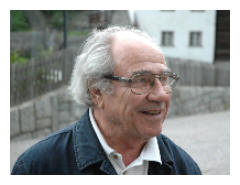Jean Baudrillard. Jean Baudrillard’s radical questioning of the character of signs, symbols and simulation in our postmodern age points towards the necessity to reconsider the role of contemporary educational practices as a possible site of resistance to the ‘code’. Trevor Norris investigates.
Contents: jean baudrillard · further reading and bibliography · links · how to cite this article · see, also, Hannah Arendt and Jean Baudrillard: pedagogy in the consumer society

Born in 1929 in Reims, France, Jean Baudrillard studied sociology under Henri Lefebvre, and taught during several tumultuous decades at Nanterre, beginning shortly before the student uprising of May 1968. That same year saw the publication of his first book, The System of Objects, a study of the meaning derived from consumption as the process by which human social relations become mediated by objects. Jean Baudrillard sought to provide an understanding of the new “hyper” form of advanced capitalism and technology which emerged through the virtual and simulated character of contemporary experience. His account of the “implosion of meaning” entailed by the proliferation of signs and the reduction of the sign to the status of commodity points toward the simultaneous experience of the loss of reality and the encounter with hyperreality.
In The Consumer Society Jean Baudrillard outlines how consumers buy into the “code” of signs rather than the meaning of the object itself. His analysis of the process by which the sign ceases pointing towards an object or signified which lies behind it, but rather to other signs which together constitute a cohesive yet chaotic “code”, culminates in the “murder of reality”. The rupture is so complete, the absence so resounding, and the code so “totalitarian” that Baudrillard speaks of the combined “violence of the image” and “implosion of meaning”. Politics, religion, education, any human undertaking is swept up and absorbed by this process and ultimately neutralized; any liberating activity becomes complicit in the reproduction of its opposite. “The code is totalitarian; no one escapes it: our individual flights do not negate the fact that each day we participate in its collective elaboration.”[1]
More recently, Jean Baudrillard’s preoccupation with the simulated and his radical questioning of what remains of the “real” led him to such provocative statements as “the gulf war did not take place”[2]and “the collapse of the towers of the World Trade Center is unimaginable, but that is not enough to make it a real event.”[3]
Jean Baudrillard’s radical questioning of the character of signs, symbols and simulation in our postmodern age points towards the necessity to reconsider the role of contemporary educational practices as a possible site of resistance to the ‘code’. Is education invariably complicit in the “murder of the real”?
Jean Baudrillard died March 6, 2007.
Baudrillard bibliography
Baudrillard, Jean. The System of Objects. J. Benedict (Trans). Verso Books. London and New York, 1996 (1968)
Baudrillard, Jean. Consumer Society : Myths and Structures (Theory, Culture and Society). G. Ritzer (Translation). Sage Publications. London, 1997 (1970).
Baudrillard, Jean. The Mirror of Production. St. Louis: Telos Press, 1975.
Baudrillard, Jean. For a Critique of the Political Economy of the Sign. St. Louis: Telos Press, 1981.
Baudrillard, Jean. Seduction. New York: Semiotext: 1983.
Baudrillard, Jean. Forget Foucault. New York: Semiotext, 1987.
Baudrillard, Jean. Fatal Strategies. New York: Semiotext, 1990.
Baudrillard, Jean. The Transparency of Evil: Essays on Extreme Phenomena. J. Benedict (Trans.) London: Verso, 1993.
Baudrillard, Jean. Simulacra and Simulations. Ann Arbor: University of Michigan Press, 1994.
Key Baudrillard sources
Callinicos, Alex, “The Mirror of Commodity Fetishism: Baudrillard and Late Capitalist Culture,” in Against Postmodernism: A Marxist Critique (NY: St. Martin’s, 1990) 144-153.
Danto, Arthur C., “The Hyper-Intellectual,” New Republic 3947/8 (10 & 17 September 1990) 44-48.
Howe, Stephen, “America: Where Dreams Come True,” New Statesman and Society 1:24 (18 November 1988) 39.
Levin, Charles, “Baudrillard, Critical Theory and Psychoanalysis,” CJPST 8:1-2 (1984) 35-51.
Kellner, Douglas, “Baudrillard, Semiurgy and Death,” Theory, Culture & Society 4 (1987) 125-46.
Kellner, Douglas, Jean Baudrillard: From Marxism to Postmodernism and Beyond (Stanford: 1989). [JBMB]
Kroker, Arthur, “The Arc of a Dead Power: Magritte/Baudrillard/Augustine,” CJPST 8:1-2 (1984) 53-69. [MBA]
Wernick, Andrew, “Sign and Commodity: Aspects of the Cultural Dynamic of Advanced Capitalism,” CJPST 8:1-2 (1984) 17-34.
Baudrillard websites
http://www.mtsu.edu/~jpurcell/Philosophy/baudrillard.html
http://www.bachelorsdegreeonline.com/blog/2012/baudrillard-the-mind-behind-the-matrix/
http://www.egs.edu/faculty/jeanbaudrillard.html
http://www.popcultures.com/theorists/baudrillard.html
[1]Jean Baudrillard, The System of Objects. J. Benedict (Trans). Verso Books. London and New York, 1996 (1968), page 22.
[2]Jean Baudrillard, The Gulf War Did Not Take Place, Bloomington & Indianapolis, Indiana University Press; 1995.
[3]Jean Baudrillard, “The Spirit of Terrorism”, Le Monde, 2 November 2001.
For an obituary see: Steven Poole ‘Jean Baidrillard, The Guardian March 8, 2007 pp. 38-9) http://www.guardian.co.uk/obituaries/story/0,,2028464,00.html
Acknowledgement: the of picture: jean baudrillard – 2004 – was picture released into the public domain by the European Graduate School. Our thanks to them for allowing this use.
How to cite this article: Norris, T. ‘Jean Baudrillard’, The encyclopedia of pedagogy and informal education, www.infed.org/thinkers/baudrillard.htm.
Trevor Norris, Ontario Institute for Studies in Education, University of Toronto.
© 2004 Trevor Norris